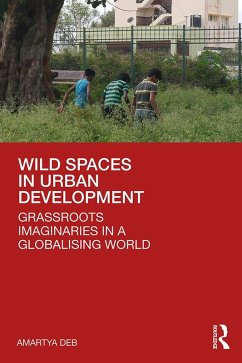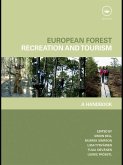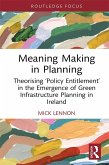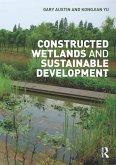Metropolitan cities are facing stark inequalities of green space distribution, hindering goals of sustainable development. But outside of human control, spontaneous nature grows in spaces that are neglected or are unaccounted for. Drawing on existing literature and primary research in a range of towns and cities, including Quito in Ecuador, Bengaluru and Kolkata in India, and Whitby in the United Kingdom, the book delves into the morphology, meanings, and values of those small-scale assemblages of wild growth which are typically overlooked. Discussing instead how such settings can be integrated into everyday urban life, the book offers a fresh perspective on issues around green infrastructure, heritage conservation, and environmental education, enabling cities worldwide to become more nature-positive.
A unique examination of an under-researched topic, this book will appeal to students, researchers, and professionals across landscape architecture, urban planning, urban ecology, and all related fields.
Dieser Download kann aus rechtlichen Gründen nur mit Rechnungsadresse in A, B, BG, CY, CZ, D, DK, EW, E, FIN, F, GR, HR, H, IRL, I, LT, L, LR, M, NL, PL, P, R, S, SLO, SK ausgeliefert werden.
Matthew Gandy, Professor of Geography, University of Cambridge, UK
'Amartya Deb's Wild Spaces in Urban Development: Grassroots Imaginaries in a Globalising World, expands our understanding of urban nature by focusing on what he terms 'landscape fractions' - the microsites in cities where wild nature asserts itself and often flourishes. Drawing on extensive fieldwork, particularly in Kolkata and Bengaluru, Deb highlights how such small spaces teeming with plant life enhance the urban environment, especially for communities without parks or other designed green spaces. Not incidentally, these scattered and informal wild spaces sustain diverse animals - including wildlife such as birds, insects, and small mammals, as well as grazing cattle - allowing them to persist and thrive. Deb's extraordinary work makes clear why we should tend, and protect these small yet vital spaces for wild nature.'
Jennifer Wolch, Dean Emerita, College of Environmental Design, University of California, Berkeley, USA









